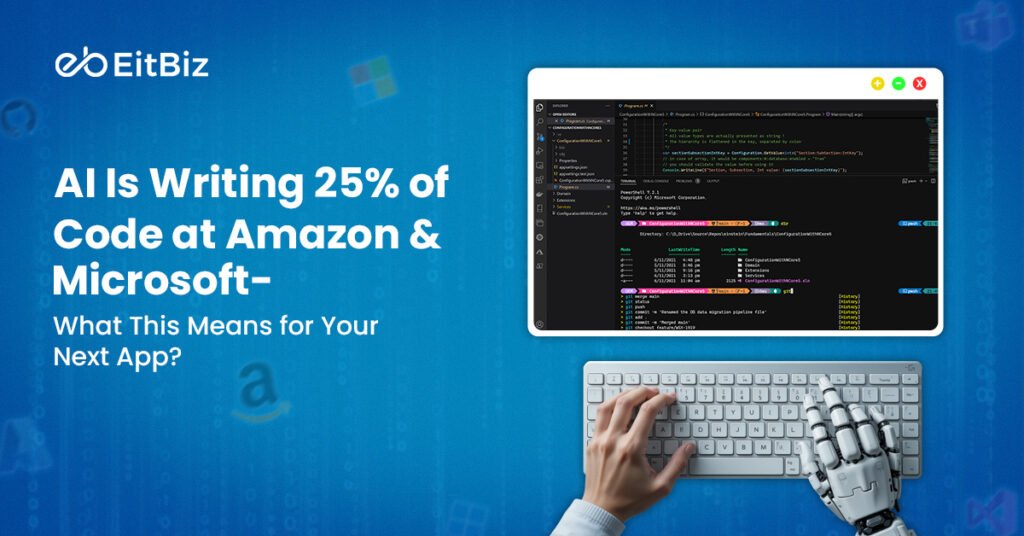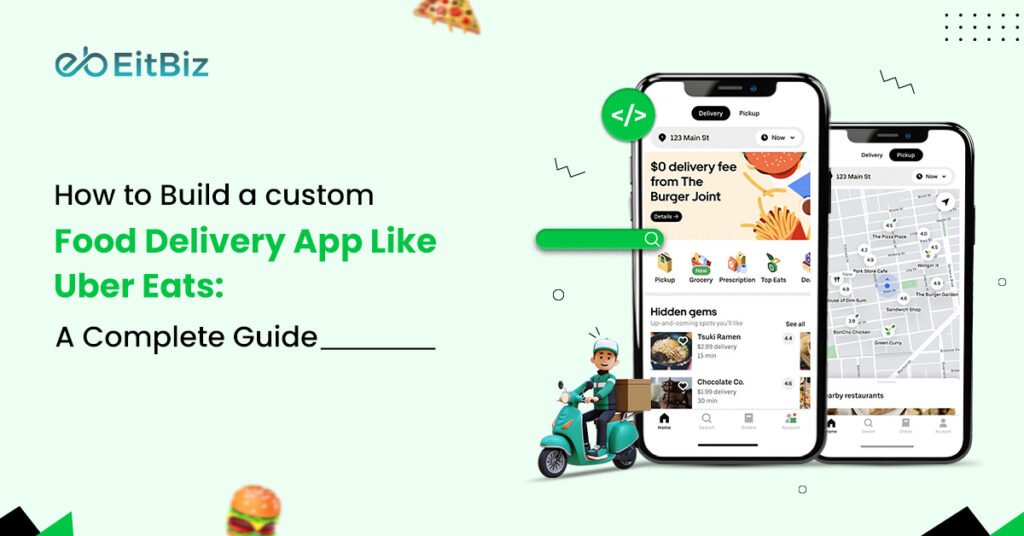A paradigm change has occurred in the implementation of appropriate corporate strategies. The majority of businesses are transitioning from desktop websites to mobile applications, which is a more efficient way to reach their target customers.
However, the mobile app business is going through one of its most competitive periods. Choosing the correct mobile app development framework and an appropriate platform and development approach is critical.
The number of programming languages available for both the Android and iOS operating systems has steadily increased over time.
Cross-platform app development has also gained traction, and the best of the frameworks may be credited with this big shift.
Frameworks are also important for converting an Android app to an iOS app and vice versa.
What is a Mobile App Development Framework?
Mobile applications have proven to be one of the most effective approaches for businesses to expand their consumer base. Unique app ideas keep emerging now and then. Everything worked in favor of custom mobile app development companies.
To make a mobile application, you don’t have to learn a programming language. For iOS and Android, there are a variety of mobile app development services in the USA. All you need is a good knowledge of web-based programming languages. HTML, CSS, and JavaScript, for example.
A mobile app development framework is a software development platform that includes tools and software, debuggers, compilers, and programming interfaces. As a result, a developer produces the application’s source code and framework and then employs numerous elements to generate the programme for various mobile devices.
Different Categories of Mobile App Frameworks
We may classify mobile app development frameworks based on their classes and unique qualities, such as the following:
-
An Approach to High-Level Coding Languages
These methods are also referred to as “no frameworks.” As a degenerate case, you can use it. A high-level programming technique will provide you with the greatest flexibility, applicability, and management.
-
Full-Stack Frameworks at a High Level
When you need to construct a full-featured enterprise mobile app in a short amount of time, this category of frameworks comes in helpful. The subsequent abstraction stage reveals it. This class provides the developers with all of the necessary infrastructures to create the app more quickly.
-
Frameworks with Little or No Code
When you need to build small amounts of logic, this is the level to go to. All you have to do now is make sure the UI elements, integration, performance, and deployment choices satisfy your needs. Then it will serve as the quickest method for developing your mobile app.
-
Frameworks with a Specific Purpose
This class aids in the development of apps. It adds abstraction and provides an easy-to-use API.
Combining several sorts of frameworks, such as Messaging, ORM, UI, and so on, is one of the most important duties of this class. It also provides you with a good mix of flexibility and development speed.
-
Aggregators/Generators of Code
A code generator’s main goal is to speed up the first stages of mobile app development. Furthermore, this class aids developers in configuring their apps using mobile app development frameworks that are narrowly targeted.
3 Types of Mobile App Frameworks
Devices such as iOS, Android, and Windows are just a few options. Apps for mobile devices come in different formats and sizes.
On the other hand, mobile app development frameworks can be classified into 3 groups in terms of how they work on a smartphone.
-
Native Apps
They’re made for particular Operating Systems like Android, iOS, and Windows. Apps take advantage of device features like RAM, camera, and GPS, among others.
-
Web Apps
A Web application is software that is stored at a remote place and distributed via the Internet using a browser interface. Instant messaging apps, weblogs, auction sites, online retail sales, emails, and other web applications are widely used.
-
Hybrid Apps
Hybrid apps can be launched on a smartphone just like any other app. Hybrid apps are different from native apps because they combine features from both native and online apps.
These apps are typically built with the aforementioned frameworks.
- Hybrid app framework
- Native app framework
Native apps are one of the highest-quality mobile applications when it comes to both looks and functionality.
On the other hand, Native application development is more expensive. Furthermore, due to the wide range of platforms and devices accessible, obtaining the highest level of client involvement may be difficult.
A mobile app development company in the USA may choose hybrid or cross-platform application development technologies when budget constraints and a large number of customers are the key aims.
What is the Best Framework to Develop Mobile Apps?
Take a look at some of the most popular mobile app development frameworks that will be a key tool for developers in 2022.
Native Scripts
This framework has been rated as the best for creating hybrid apps. Telerik, a Bulgarian software business, supports this framework created by Progress.
The Native Scripts apps use the same APIs as those created with Xcode or Android Studio. The official website will provide you with appropriate assistance in the shape of tutorials.
Mobile Angular UI
The Mobile Angular UI combines the Bootstrap and Angular framework implementations. It streamlines the development process and allows you to use HTML5 to create apps.
Developers can also use Fastclick.js and overthrow.js to provide a smooth experience. This is an open-source framework.
Ionic
Ionic is one of the most extensively used frameworks for mobile app development. What’s more remarkable is that it’s completely free.
It’s usually a client-side framework that uses HTML, CSS3, and JavaScript to create native-based apps.
The Ionic framework also supports the most recent mobile devices and builds a solid foundation for the mobile app before being released to the public.
HTML5’s element also aids in the development of hybrid apps. It is undoubtedly one of the most valuable elements for the development of Progressive Web Apps.
It’s compatible with strong software development kits like Angular. PhoneGap and Cordova are also recommended.
Flutter
Flutter is an open-source mobile app development tool created by Google. It’s a popular cross-platform app development language that’s written in Dart.
On the other hand, Flutter is ideally suited for the construction of hybrid apps when it comes to framework selection. Skia is a 2D rendering engine that is used to create visuals.
The aesthetics have a Material Design and Cupertino feel to them. Flutter also makes testing your project a lot easier. If you make a mistake, you don’t have to restart your project.
React Native
It’s one of the many popular cross-platform frameworks launched by Facebook, the social media giant.
Despite being founded in 2013, it has quickly become one of the most popular platforms for mobile app developers.
React Native is a free, open-source framework that provides extensive support for IDEs and other mobile app development tools.
It’s said to be one of the best JavaScript frameworks for developing native apps for both Android and iOS.
Summing Up!
To compile the list of the 5 best mobile app development frameworks, we took into account a variety of aspects such as development time, operating system, and so on.
Mobile app development is actively evolving from a single platform app to a cross-platform mobile app. The script, platforms, development approach, code, and integration of mobile apps are all changing dramatically.
We hope that this blog will assist readers in selecting the best custom mobile app development company for their project in that scenario.
Author
-

Sandy K is the dynamic and visionary Director at EitBiz. With a rich tapestry of experience spanning almost 15 years, Sandy has cultivated a unique, global perspective that he brings to the forefront of EitBiz’s operations. Visit Linkedin
View all posts




